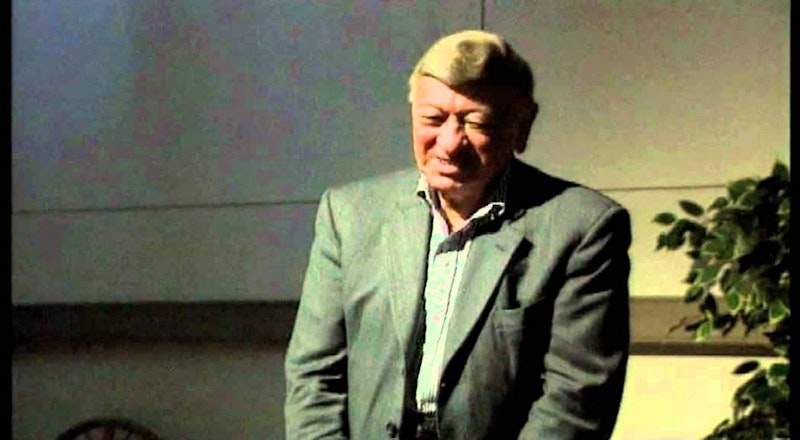I once met a woman who, after high school, joined the Air Force. Given a series of tests, it was determined she had an aptitude for languages. She’d never had the slightest desire to learn a foreign language. They gave her a list of languages and told her to pick one. She closed her eyes and at random put her finger on the list. It fell upon Korean.
For the next two years, eight hours a day, she went to a building where every word she heard, whether in the hallways, on the TV in the commons’ room, or the cafeteria, was in Korean. She didn’t understand anything for the first six months. Then the formal classes began. Finally she was transferred to Korea where the lessons continued. At the end of the process she was fluent in Korean. She never told me what her job was. When she left the Air Force she vowed never to speak Korean again as long as she lived. When I met her, she was working as a stripper.
Like so many ex-pats in Paris, when I needed to find a job, I became an English teacher. I taught English the way I was taught, using books, time-line diagrams, word lists and exercises. It was rare that any of my students showed any progress. I asked other teachers about their methods. They explained that it takes time for the new knowledge to settle in and that I shouldn’t expect too much. This sounded suspicious. Later I worked in a engineering University. I found that what was true in the private schools was the same in the public schools. The typical student studied English in grade school and high school, typically for at least eight years and yet few could communicate beyond the most basic level.
Somehow I’ve learned French. But how? Was it in bars, by reading, osmosis, by just being here? It’s hard to say. I do recall the uselessness of the French courses I took in junior high and high school. In Europe, the English and French have the reputation for being the least likely to learn a foreign language. The opposite is true of the Germans, Danes, Swedes and Norwegians. In my experience, the people in Europe who speak English the best are the Dutch. Every one I’ve asked has told me the same thing: they learned from watching American films and music videos on TV without subtitles. It’s a less aggressive form of the Air Force pedagogic methods, total immersion. They just jump in from a very early age; they like the movies and the music, they’re motivated.
Recently, I’ve found myself in a position where I need to learn German. In a couple of months I’ll be hiking in the Taunus mountains outside of Frankfurt with a German who speaks no English. Besides, I’ve always loved German literature, poetry and music. However, not only does German have the reputation of being difficult, I’m also weary of the various methods available, all of which I feel are as useless as the ones I was told to use as a teacher.
I came across a BBC documentary on Michel Thomas, a Polish Jew who fought in the French Resistance and later taught languages in Hollywood. One of his famous students was Grace Kelly, to whom he taught French when she married Prince Rainier of Monaco. His idea is that if a student doesn’t learn, it’s the teacher’s fault. His outlook is one of empowerment. There’s no reading nor writing, forced memorization or note-taking. Thomas’ approach is based solely upon listening, repetition and inspiring the student. I tried his eight-hour course. The results were immediate; I could make basic phrases after one hour.

